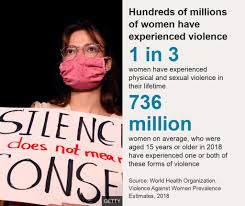As a blogger, I was excited to learn about AI and the advent of ChatGPT. It seemed that was all you heard about online. Everyone jumped on the bandwagon, and to be honest, I checked it out myself.
I found ChatGPT very useful but a bit limited. It is unable to access any information after 2021, so you sometimes do not get current or even correct information because of that.
However, after the big "hooplala" started to fade, it seemed that everyone was getting into the AI ring. I could easily list about 75-100 new AI tools that are now available for writing, editing videos, text to talk for videos, copywriting, marketing, art, and more. It seems everyone wants a piece of this pie.
I have used ChatGPT in the past to help me gather information for some of my blog posts, but I rarely just copy and paste the results into my blog. I usually have to "tweak" it some to fit my niche, or I have to rewrite parts to bring it up to date. Even with the need to make those changes, it really does help you put out content on a regular basis.
Lately, ChatGPT has been either down or very, very slow. Maybe because they are working on updating it or something. So I have been trying out some of the other tools available that are also free to use (although they usually have a finite number of times you can access it before they want money). Let me say here that ChatGPT is open source and totally free unless you choose to upgrade it.
Anyway, today I decided to use TailWind's Ghostwriter tool to write this post. It was really supposed to be about living with a compromised immune system in the post-Covid-19 era. Since I live with my youngest daughter who underwent a Kidney/Liver transplant 6 years ago and is always going to be on medication to keep her immune system fairly inactive, we still have to be very, very careful in order to keep her healthy. Hence, the choice of topic for this blog post.
I know I changed my mind, but I will post for you what I got from using the TailWind Ghostwriting tool so you can see what you get:
The Overlooked Struggle: How Immunocompromised Individuals Are Still Facing Restrictions
As the world slowly begins to emerge from the COVID-19 pandemic, there is a collective sense of relief and excitement. However, for those who are immunocompromised, the end of restrictions doesn't necessarily equate to a return to normalcy. The reality is that these individuals are still facing numerous challenges and limitations that most of us don't even consider.
In this article, we will explore the ongoing struggle that immunocompromised individuals are facing, the continued need for caution and public health measures, and the importance of advocating for their rights.
We will also delve into the specific restrictions these individuals are dealing with and the negative impact it's having on their personal and professional lives. Ultimately, our goal is to increase awareness and empathy for this overlooked struggle and encourage society to take action towards creating more inclusive and accommodating environments.
Need for Continued Caution:
While it's important to acknowledge the progress being made in overcoming the pandemic, we must also recognize that immunocompromised individuals are still at risk. As we move forward, it's crucial to advocate for their rights and create more accommodating environments.,
As the world adjusts to the "new normal," it's important not to forget about the needs of immunocompromised individuals. While many people may see vaccination as the way to move on from the pandemic, it's not that simple for those with weakened immune systems. It's crucial for us to push for more inclusive policies and accommodations for the immunocompromised community.
This starts with amplifying the voices of those who may feel unheard. By advocating for immunocompromised individuals, we can help ensure that their unique needs are taken into consideration when policies are being made. This may include pushing for more remote work and education options, as well as accommodations for medical appointments and treatments.
We must also work to create more accessible and accommodating public spaces. This may involve mask mandates and social distancing guidelines that take into account the needs of immunocompromised individuals, as well as increased sanitation measures in high-traffic areas.
Overall, advocating for immunocompromised rights isn't just important during the pandemic - it's something that should be a priority in our society. By prioritizing the health and safety of all individuals, we can create a more inclusive world that works for everyone.
The continued restrictions faced:
Despite the initial lift of restrictions for fully vaccinated individuals in some areas, immunocompromised individuals still face a range of limitations due to their increased vulnerability to infections. Many are still advised to stay home, limit contact with others, and avoid crowded areas - all of which can be hugely isolating.
This continued isolation has led to an array of challenges for immunocompromised individuals, including mental health struggles, financial difficulties, and problems with basic tasks such as grocery shopping. Furthermore, the lack of clear guidelines and protections for immunocompromised individuals has resulted in many feeling unsupported and neglected by society.
These ongoing restrictions serve as a reminder that more needs to be done to ensure that those with compromised immune systems are not left behind in the wake of the pandemic. The next section will examine some of the specific problems that isolation creates for these individuals in their personal and professional lives.
Problems that isolation creates at work and at home
Isolation has not only affected the mental and financial aspects of immunocompromised individuals' lives, but it has also caused significant difficulties at work and home. One of the main challenges is the inability to work in a conventional office environment, which has caused job loss or a significant reduction in work hours for many. Working remotely has become the new norm, but not all jobs allow for it, creating unequal opportunities for those who cannot work from home.
Moreover, isolation has made it difficult for immunocompromised individuals to manage their households, especially if they live alone. Simple tasks such as grocery shopping, getting prescriptions filled, and running errands have become a challenge, putting their health at risk if they have to leave their homes. Additionally, they may have to rely on others for help, which can be inconvenient and create feelings of guilt and dependence.
Children of immunocompromised individuals also face difficulties in remote learning and socializing, causing added stress for parents who have to juggle work, homeschooling, and caring for their family's health. The lack of in-person interactions further exacerbates feelings of isolation and loneliness, causing significant mental health issues.
In conclusion, isolation has not only created mental and financial difficulties for immunocompromised individuals but also created problems for them at work and home. Society needs to provide more support and clear guidelines to ensure that they are not neglected or left behind in the wake of the pandemic.,
It's easy to forget that, while most of us have taken steps towards returning to our pre-COVID-19 routines, there are people who still cannot. Immunocompromised individuals have to navigate a world that is not designed with their unique needs and challenges in mind, and it's our responsibility as a society to create a more equitable and accessible environment for everyone.
We need to continue advocating for their rights, supporting them with resources, and prioritizing public health measures that keep them safe. As we move forward, let's keep in mind that the fight against COVID-19 is not over for everyone, and that we all have a role to play in making sure that everyone can participate fully in society. Let's not forget the words of disability rights activist Judy Heumann, who said, "We must continue to demand that our rights be protected, that our dignity be respected, and that our voices be heard."
Not bad, huh? This will still need to be "tweaked" if I were to use it as a blog post. I have to add the images later myself, and that is always a struggle to find the correct image to align with the posts, but so far I have been able to do so.
If AI interests you, there are many, many videos about all the different ones out there now on YouTube. I can also provide you with a long list of AI tools divided by use/application if you want it. Just subscribe to my blog and send me message that you want one.


















































